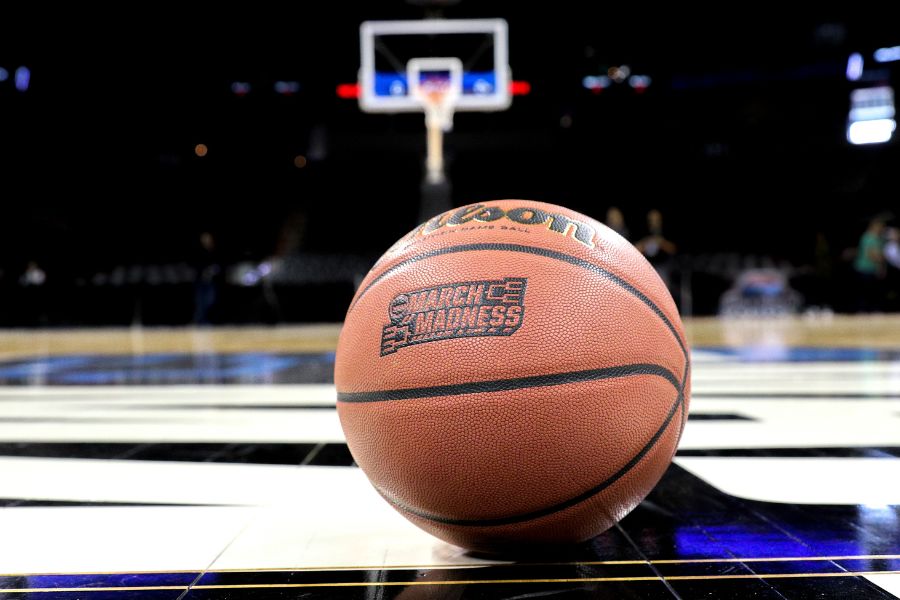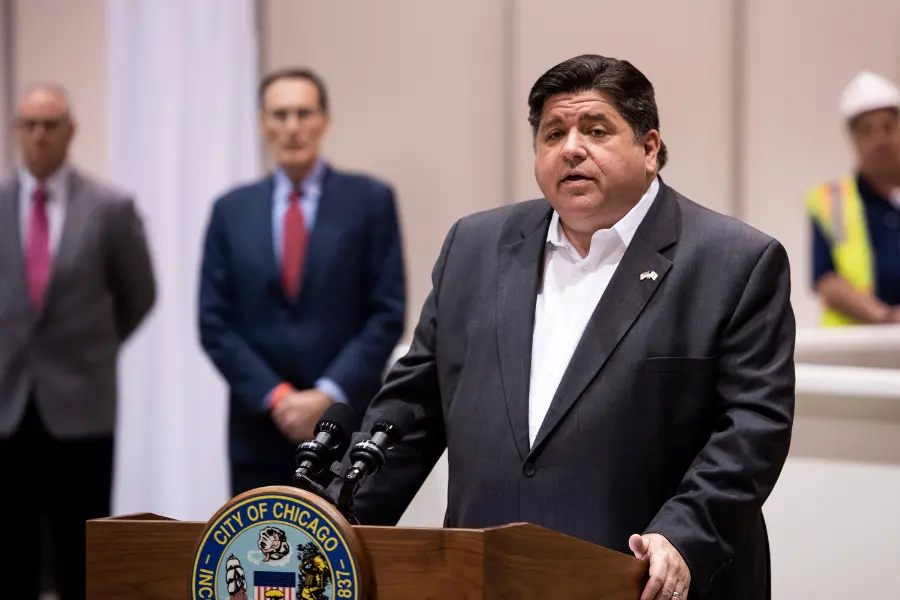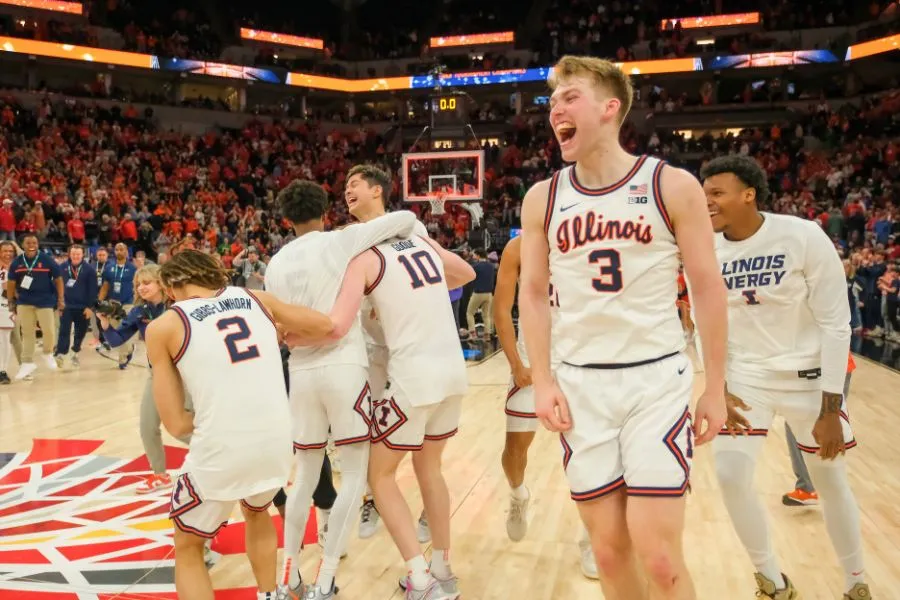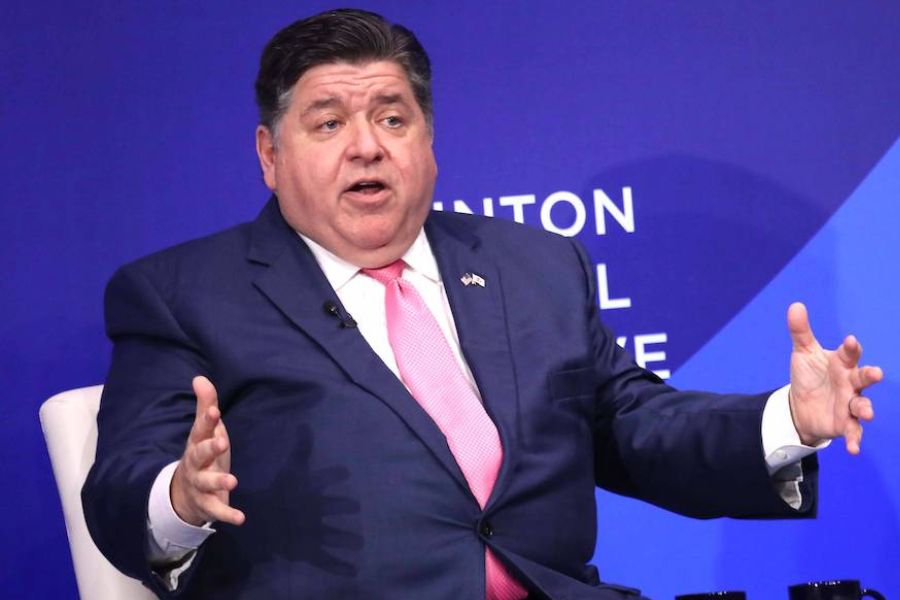The men’s college basketball “March Madness” tournament begins on March 14, and gamblers in Illinois can make legal wagers on games for a third consecutive year.
However, there is one exception. For a second straight year, Illinois residents and visitors will not be able to legally bet on a team such as the University of Illinois or Northwestern – except at casino or racetrack sportsbooks.
Furthermore, the wagers must take place before the games begin – no live betting. There are no individual player props, either – such as “over” or “under” how many points a specific player will score in a game.
Even these limitations are an improvement compared to 2021 when there was no legal wagering on March Madness games involving Illinois teams at all in the first year of such bets in the state.
As fate would have it, a pair of first-round results that year catapulted the Fighting Illini of the University of Illinois – the state’s largest school with more than 50,000 students – into a second-round matchup versus the Ramblers of Loyola of Chicago, who made a history-shattering 2018 run to the Final Four as an 11th seed behind the ardent cheering of 98-year-old Sister Jean, the team’s chaplain.
Of course, the game would have been a betting bonanza for legal sportsbooks. That led to widespread criticism of the state law, and nine months later Gov. J.B. Pritzker signed an amendment that carved out a limited exception for allowing bets on Illinois college teams.
While there are 13 Division I schools in the state, only the Illini and Northwestern had good enough regular seasons in 2022-23 to be serious candidates for a March Madness berth.
Why have such a legal betting limitation at all?
There are a few reasons that wagering on all March Madness games is legal in Illinois, but was not in-state universities until the law was amended.
It’s likely in part a result of the decision by New Jersey lawmakers in 2011 to include such a carveout in a statewide referendum. That exception was driven by the eagerness of state Sen. Ray Lesniak – the founding father of the state’s legal gambling expansion efforts – to get a state law passed permitting sports betting at racetracks and Atlantic City casinos.
Some lawmakers – many of them alumni of Rutgers University – had been hesitant to support putting the issue on the ballot that year, for fear of offending the university’s leaders.
Rutgers also is New Jersey’s only Division I football program, and historically it had always struggled to be competitive – so the sacrifice wasn’t all that significant for sportsbooks anyway.
Just as Lesniak had hoped – because he believed a 1992 federal law limiting sports betting to Nevada would be found to be unconstitutional – the NCAA, NFL, and three other sports organizations sued the state in 2012 to try to prevent sports betting from being launched.
After six years of court battles, the U.S. Supreme Court in 2018 indeed struck down the Professional and Amateur Sports Protection Act as impermissible “commandeering” of state officials into doing the federal government’s bidding.
That in-state exception was later copied by many states, including New York, Delaware, New Hampshire, Wyoming, South Dakota, Virginia, Washington, and Wisconsin.
The University of Illinois athletic director Josh Whitman, who opposed the amendment passed in late 2021, argued that the change was dangerous for student-athletes. The other 12 Division I athletic directors backed his opinion.
“I have no problem with betting on professional sports, for a number of different reasons. But in the college space, to me, it is entirely different. I think these are in large part kids, right? They’re 18-, 19-, 20-years-old. They’re living on a college campus, they’re surrounded by people every day who may be betting on them. “How strange is that to be sitting in a classroom next to somebody who may be placing a bet on how you’re going to play that night?”
Numerous state laws permit gambling on all March Madness game point spreads, but ban “prop betting” on individual player performances by in-state athletes.
Critics of the limitations note that gambling on college sports has been around almost as long as college sports have existed.
In fact, an undercover investigation of the 1951 CCNY men’s basketball team led to dozens of arrests for “point shaving”, with a finding that six other schools – including Bradley University of Peoria, Ill. – had players involved in “fixing” games between 1947 and 1950.
Few casinos and racetracks in Illinois make it even more problematic
Another issue is that casinos and racetracks in Illinois are not located nearly evenly across the state. The bulk of the state’s legal gambling centers is located near Chicago in the far northeast portion of the state, with a few located in southwestern Illinois near the border of St. Louis, Mo.
That means that students at Northwestern University, where the campus is only a dozen miles north of downtown Chicago, may have a feasible way to legally wager on the Wildcats.
But there are no casinos or racetracks in the state close to the Fighting Illini’s Urbana-Champaign campus, so legal-age students on campus there who want to make a wager on their school’s games are liable to gravitate to illegal offshore sportsbooks. And once they use such a website or app to bet on that game, they may well decide to make all their bets there – rather than on a legal sportsbook from Illinois.






